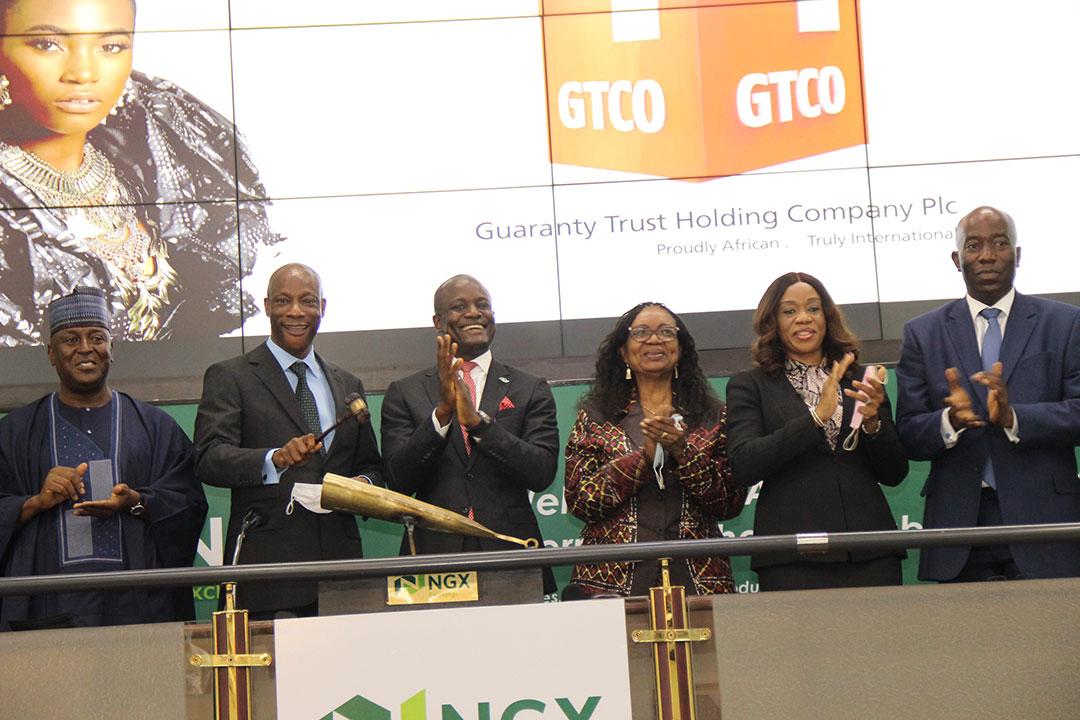- Stocks Hit 23-month High on Stable Naira, Oil Price
The equities market on Monday posted the highest result in 23 months following the recent stability of the naira and improved oil prices.
The market appreciated by N417bn to close at N11.262tn from N10.845tn recorded on Friday. The Nigerian Stock Exchange All-Share Index also rose to 32,578.38 basis points from 31,371.63 basis points recorded at the close of trading on Friday.
A total of 640.439 million shares valued at N7.675bn were traded in 7,024 deals.
Recent developments on the naira and the international oil market have improved Nigeria’s economic prospects, prompting investors to buy into the stock market.
Shares rose for the fifth consecutive session, with Dangote Cement Plc, which accounts for a third of the market’s value, surging by 8.85 per cent.
Consolidating on the gains recorded in the previous trading session, the NSE ASI advanced by 3.85 per cent at the end of the day’s trading activities, with the year-to-date return of the index subsequently settling at 21.22 per cent.
However, the volume of shares traded and market turnover declined by 9.60 per cent and 7.03 per cent, respectively. There were 45 gainers on the day, while 13 stocks shed in value.
Mobil Oil Nigeria Plc appreciated by 10.25 per cent and was the top performer in the market, trailed by Conoil Plc, Flour Mill Nigeria Plc, FBN Holdings Plc and Custodian and Allied Plc, which appreciated by 10.23 per cent, 10.19 per cent, 10.12 per cent and 9.72 per cent, respectively.
However, the day’s losers were led by Union Dicon Salt Plc, C & L Leasing Plc, Jaiz Bank Plc and Cutix Plc, which depreciated by 4.95 per cent, 4.55 per cent, 4.40 per cent and 4.27 per cent, respectively.
The bourse’s sector indices all recorded advancements, with the NSE industry index gaining 6.49 per cent; NSE banking index, 1.75 per cent; NSE food-beverage index, 0.22 per cent; NSE oil/gas index, 3.28 per cent; and NSE insurance index appreciating by 1.14 per cent.
Commenting on the performance, analysts at Meristem Securities Limited said, “The Nigerian equities market was characterised by stronger bullish activities as reflected by the price gains witnessed on certain tickers upon which profit-taking was expected.
“We expect the positive momentum to continue, however, we do not rule out the likelihood of speculators cashing in on the significant gains recorded thus far.”
Meanwhile, the Securities and Exchange Commission has said it will withdraw the registration of about 400 capital market professionals who fail to comply with the directive to provide updated information of their companies by July 31, 2017.
The capital market regulator said in a circular on Monday, “Any firm whose response is not received within this timeframe would be considered inactive and SEC would exercise its power to revoke its registration.”
SEC, pursuant to the powers conferred on it by the Investments and Securities Act 2007, had directed all capital market experts and professionals to provide updated information of their companies/firms in December 2016 and February 2017.
However, it was observed that a large number of capital market experts/professionals comprising reporting accountants, solicitors, and estate surveyors/valuers, among others, did not respond to the request.


 Naira4 weeks ago
Naira4 weeks ago
 Billionaire Watch4 weeks ago
Billionaire Watch4 weeks ago



 Naira4 weeks ago
Naira4 weeks ago






 Naira4 weeks ago
Naira4 weeks ago


 Naira3 weeks ago
Naira3 weeks ago






 Naira3 weeks ago
Naira3 weeks ago
 Economy4 weeks ago
Economy4 weeks ago


 Naira3 weeks ago
Naira3 weeks ago





















